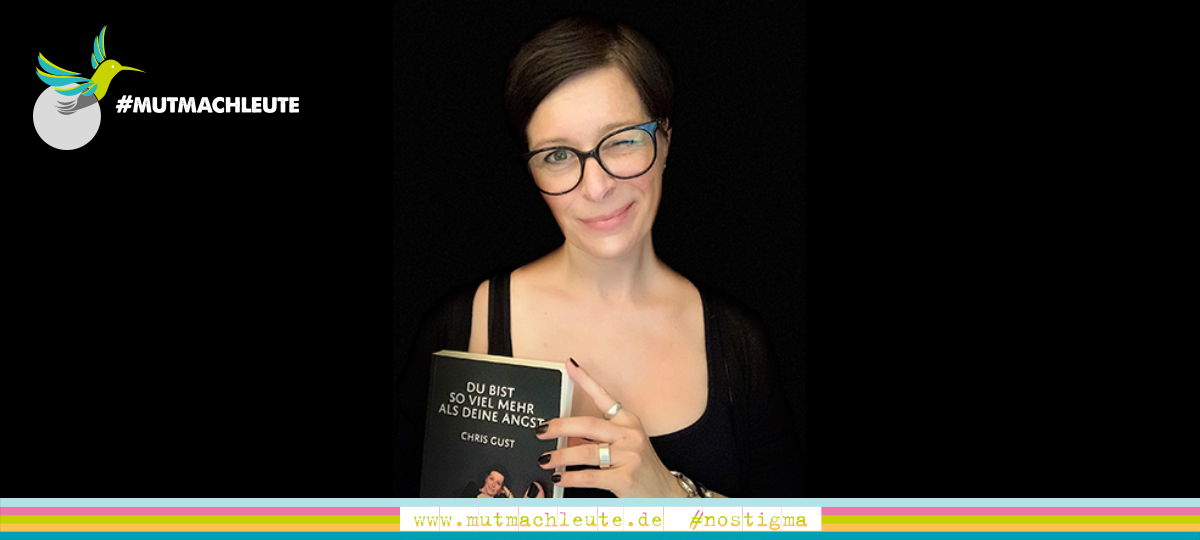Chris Gust from Mutruf e.V.: A helping hand or a sympathetic conversation, just knowing that you are not alone, can work wonders.
Name: Chris Gust
Vintage: 1973
Supervised clients: yes
Offers of help: Mutruf e.V. and life advice based on my experience
What personal crisis experience did you have as a (former) victim? In which field did you become an experience expert?
For many years, fear & panic were my companions 24/7 and I had to learn what my soul wanted to say to me. In that time I felt I had completed my own small studies to learn background information and therapy options. So that no one notices me, I fought my way through everything, only later I learned that the fight is the wrong approach. That’s why no one is fooling me so quickly when it comes to fear. Merciless self-reflection and uncovering my very personal red threads and imprints was an essential part of my journey.
What was your motivation to complete an ExIn training and now help people?
My school is life, it has arisen because of my outing and my projects that many people contact me and ask for advice/support. I do this with my various projects: picture series “colours of SOUL of colours” (in which celebrities also show face), books (“You are so much more than your fear”, published in October 2019; my second book on the subject will be published as planned for Leipzig Book Fair 2021) and “Mutruf”- give each other a foothold, the telephone service for panicers, to make a difference in the minds of society for those affected.
What prejudices or misconceptions exist in society about the respective disease picture, which has also affected you?
This is hard to say, because many things are not said openly, but you can feel in the open way that it works in the mind in response. Often it is a distancing afterwards, which strengthens that.
Many people think, for example, that people with an anxiety disorder should not be hired. In my opinion, exclusion is one of the worst things that can happen. When we are busy with meaningful things and tasks, the head cinema also has less space. If this were clarified, a different acceptance would arise and the pressure to make no comment would disappear. Also, that people “who have such a head thing” only have to pull themselves together properly is one of many prejudices, but probably often out of uncertainty.
How do you personally help affected people in institutions and what helpful treatment options do you think are available?
I’ve had some kind of invisible sign on my forehead all my life, with something like “Kummerkastentante” that has magically attracted some people. My open approach to this issue over the past few years has made this much more so. In my painting courses, people can intuitively indulge in the process of painting, I am not a trained painting therapist, but for many I am probably with my being.
I also help by moving something in society and going public with my work. My book gets a lot of positive feedback because people feel understood at last, I think the second one will be just as helpful for many affected people.
The telephone service
Mutruf – giving each other support is
a man-to-people initiative. Formerly self-affected people now offer other panic-stricken people a sympathetic opportunity to talk. We don’t make diagnoses or replace doctors or therapists, but we’re there and no one needs to be ashamed of ourselves because we know how it feels.
You can find more about Chris Gust on their homepage.



